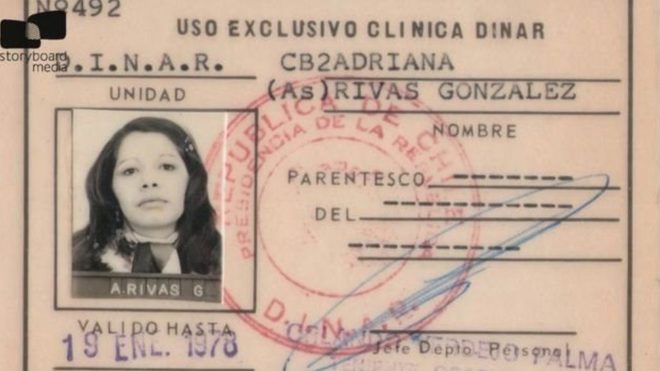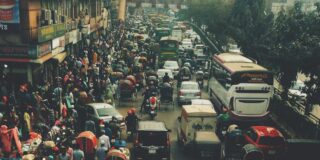
It seems that every week we are reminded about Australia’s connection and links to persons who are alleged to be involved in the commission of grave international crimes. This month marked 22 years since the adoption of the Rome Statute of the International Criminal Court, and Australia is not living up to the promise of international justice.
Allegations of war crimes in Afghanistan
The revelations of more and more incidents of alleged war crimes committed by Australian special forces in Afghanistan continue to roll in, with increasing horror at the nature of crimes committed and the attempts at cover-ups. Soon after their commission, the crimes were ignored or not genuinely investigated by the Defence Force which only entrenched the culture of impunity and delayed justice and accountability for the families and communities of those who were killed and devastated by the crimes.
In May 2016, the Inspector-General of the Australian Defence Force commenced an inquiry led by Justice Paul Brereton following persistent rumours of alleged crimes. It is expected to complete its inquiry this year. The AFP has also commenced investigations into some of the allegations of crimes and may soon bring war crimes charges against individuals involved. These crimes, including unlawful killings against unarmed men and children and detainees whose hands were severed, are all serious violations of the laws of armed conflict and serious crimes under Australia’s criminal law. In addition, they left Australian soldiers who witnessed the incidents torn by guilt and trauma.
It remains that if Australia fails to genuinely investigate and where appropriate, prosecute persons involved in the crimes, Australian nationals may be subject to investigation in The Hague at the International Criminal Court.
Australian foreign terrorist fighters
This responsibility to investigate Australians involved in the commission of grave crimes should also extend to Australian foreign fighters. Attempts at prosecuting returned foreign fighters only on terrorism offences ignore the involvement of international crimes and risks undermining efforts to prevent the commission of these crimes and ensure compliance with international law.
In these particular instances where foreign fighters are alleged to have committed horrific gender-based sexual violence, particularly against the Yazidi minority, it denies survivors of these crimes meaningful opportunities for justice and accountability.
Stripping citizenship from foreign fighters and excluding their return is a failure by Australia to comply with its obligation to investigate and prosecute Australians involved in the commission of grave crimes.
Australia is a safe haven
In addition to crimes in Afghanistan and crimes by Australian foreign fighters, two developments transpired in Australia recently that should concern our indifference for hosting alleged war criminals, torturers and other persons of similar repute in this country, and points to evidence that Australia is a safe haven for such people.

In the last couple of years, it was revealed that Croatian police were investigating allegations of war crimes committed in the context of the war in the former Yugoslavia in 1991, against a Serbian-Australian man, Zoran Tadic, living in Sydney for over 20 years. He fled back to Serbia before Croatian police were able to issue a warrant for his arrest and initiate extradition proceedings.
Later this year we will learn about the outcome of extradition proceedings against a Chilean-Australian woman, Adriana Rivas, who is alleged to have been involved in Chile’s much-feared intelligence agency under Augusto Pinochet. The allegations against her include involvement in abductions and torture sessions.
There are legislative gaps in Federal criminal legislation which would allow for persons like Adriana Rivas and Zoran Tadic to live in this country without any scrutiny or accountability for their alleged actions.
She has been in Australia for over 30 years. In 2006 on a visit to Chile she was arrested but managed to escape whilst on bail and was back in Australia continuing to enjoy living in impunity. It is a testament to the long struggle and push by the victims’ families and the Chilean-Australian community who have campaigned that Rivas, and possibly others like her living here, face justice.

Is Australia a safe haven for perpetrators of atrocity crimes? It is hard to argue against this proposition when these two cases, and every few years, fresh cases emerge of other persons who sought safe haven in Australia following conflicts or crimes overseas. There are legislative gaps in our criminal laws that should be reviewed.
Need for a specialist investigations unit
In the late 1980s, there was widespread concern following revelations of suspected Nazi war criminals living in our midst. The Menzies government carried out an inquiry and it led to the establishment of the Special Investigations Unit. Of the hundreds of investigations conducted, only three prosecutions commenced and no convictions.
The appetite for these types of investigations and prosecutions waned and the SIU was unfortunately disbanded in 1994. Where Australia failed to consolidate the build-up of this expertise, other countries, sought to enhance their war crimes program. Many of those Australian investigators went on to lead investigative teams in international criminal tribunals abroad.
The Australian Federal Police which has the mandate to conduct investigations into these crimes has limited resources and specialist expertise and training required for these types of investigations. Furthermore, there are legislative gaps in Federal criminal legislation which would allow for persons like Adriana Rivas and Zoran Tadic to live in this country without any scrutiny or accountability for their alleged actions.
Meanwhile, over in Europe, arrests and trials against persons suspected of involvement in torture in the Syrian regime’s security apparatus, and individuals involved in atrocity crimes against the Yazidi minority, occur as we speak.
The Australian government should commit to establishing and funding a multi-disciplinary specialist investigations unit and review Australia’s international crimes program across the whole of government.
There is plenty for Australia to do to act on its commitment to ending impunity for atrocity crimes and to fulfil Australia’s obligations and responsibilities under the Rome Statute system of international justice.




